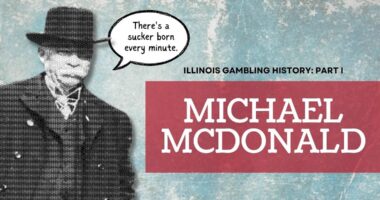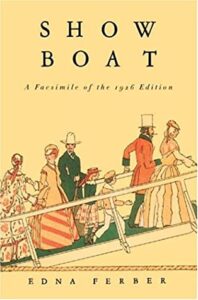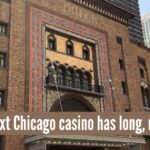
Gambling has a rich and lengthy history in Illinois, dating back to before the state officially became part of the union in 1818.
In this series, Play Illinois highlights individuals and occurrences from the early history of gambling in Illinois.
Gambling quickly gains ground (and criminal interest) in Illinois
In the early days of Illinois, gambling was widely accepted as a form of entertainment by Americans. However, as commercialization of gambling increased, so did criminal activity, leading to a negative association with laziness and immorality, especially among the upper class. By 1830, Chicago’s Protestant clergy condemned gambling, prompting city officials to crack down on the practice by arresting the owners of at least two local betting establishments.
Despite their low-paying, micro-managed work, the working class found gambling appealing as it provided a sense of independence and a break from their daily routine. Participating in competitions also gave them the opportunity to take risks not typically available to men of lower social status.
Illinois bettors placed bets on a wide range of activities, including checkers, card games, backgammon, horse racing, boxing, and policy. By the 1850s, betting markets had grown to include rat and cock fights. Hundreds of gambling establishments were established in the state, particularly in the city core, making Illinois Gambling a significant economic driver with gambling payrolls, rental income, and related spending all contributing to the state’s economy.
Naturally, the increasing profitability of gambling in Illinois attracted both entrepreneurs and those with criminal intentions.
Michael Cassius McDonald, Chicago’s first true crime lord
Born in Niagara, New York in 1839 to Irish immigrants, Michael Cassius McDonald first arrived in Chicago at the age of 15 in 1854. After a brief visit, he returned two years later and decided to stay. He made a living selling candy and essentials to train passengers as a “train butcher,” while also engaging in various swindling schemes.
Throughout this time, McDonald honed his card-playing abilities and utilized his sharp observational skills to interpret his adversaries’ body language as they bluffed and placed bets. This talent would prove invaluable in the future.
In the midst of the Civil War, McDonald came up with a deceitful plan known as the “bounty broker” scheme to cheat the army out of their enlistment rewards ($300 or $500). He orchestrated a scheme where individuals would enlist under multiple fake names, and in exchange for helping them evade punishment, McDonald would take a cut of the bounty.
After the war concluded, McDonald funded a traveling faro bank that was reputed to be the most prosperous in Chicago.
Using the profits from his numerous schemes, McDonald quickly established his inaugural gambling establishment on 89 Dearborn Street. By 1868, the Chicago Tribune was documenting his arrests for criminal conspiracy and operating gambling establishments.
The next year, he was arrested once more for stealing $30,000 from a cashier at a Chicago Dock Company, who reportedly handed over the money to McDonald. After spending three months in jail, McDonald was ultimately acquitted at trial. However, the costs of the legal proceedings affected his ability to afford police protection.
The lack of funds caused his gambling business to experience frequent police raids, leading to McDonald being regularly arrested and fined. Consequently, he harbored a deep-seated resentment towards law enforcement for the rest of his life.
A syndicate rises from the ashes of the Great Chicago Fire
After losing everything in the Great Chicago Fire of 1871, McDonald quickly rebounded and opened a saloon at the intersection of State and Harrison streets. The establishment became known for hosting illegal card games that drew a large crowd.
After two years, McDonald used his success to establish The Store, a popular four-story gambling establishment that quickly became a hit. Despite the rigged games, The Store’s inclusion of a saloon, hotel, and upscale dining options made it a beloved destination in Chicago.
During this period, McDonald began to receive “tribute” from various gambling establishments and brothels in exchange for protection from the authorities. Simultaneously, he bribed corrupt law enforcement officials and politicians to secure their ongoing collaboration. These illicit activities, along with his other criminal endeavors, are regarded as the genesis of organized crime in Chicago.
Ballots, bullets and bribery
The success and scrutiny of the McDonald’s syndicate in the local media only added to his legend.
McDonald is credited with establishing “the gambler’s trust,” Chicago’s inaugural ‘political machine,’ with his political endeavors potentially shaping the foundation of the present-day Democratic party.
Regardless, he orchestrated the victorious 1873 mayoral campaign for Harvey Doolittle Colvin, which earned McDonald considerable influence in the city. He then assisted in securing Carter Harrison Sr.’s rise to power in 1879.
During this time, McDonald faced a setback when reformer Monroe Heath was elected mayor in 1876. Heath conducted numerous raids on McDonald’s gambling operations, even targeting his apartment situated on the upper level of The Store.
McDonald was not present during the raid, but his wife Mary was at home. Mary, who shared her husband’s distrust of the police, fired at the officers conducting the raid. Reports vary on whether Mary fatally shot an officer or was charged with attempted murder. Nevertheless, authorities deemed the shooting justified despite Mary’s arrest. There are allegations that McDonald may have influenced the outcome by bribing a judge.
Luckily for McDonald, Harrison was reelected in the subsequent election.
Millions earned through gambling, fraud and influence
During his heyday, McDonald was known as “King Mike” for his ability to forge alliances between Chicago politicians and the gambling industry. This partnership helped funnel illicit gambling proceeds into Democratic Party activities while also providing protection from law enforcement for those who were willing to pay for it.
In 1882, McDonald purchased The Chicago Globe in an attempt to increase his influence in elections and promote his preferred municipal ordinances. Three years later, he expanded his operations by launching a bookmaking venture that managed gambling at racetracks in Illinois and Indiana, including Garfield Park.
McDonald had become a multimillionaire by that time, thanks to his gambling profits and favorable agreements. His wealth was often linked to shell companies that frequently did not deliver the services they had promised.
In the late 1880s, McDonald successfully secured a contract to paint the city’s courthouse with a protective compound that turned out to be ineffective. He achieved this by bribing the Cook County Board of Commissioners and Chicago City Council. McDonald then overcharged for the project, billing between $128,000 and $180,000 for a project that should have cost $30,000.
Despite some individuals being imprisoned for the fraud, McDonald managed to evade any legal consequences. However, a newspaper probe led to a scandal that damaged McDonald’s reputation. As a result, he decided to temporarily withdraw from the public eye, and even went as far as selling The Store.
King Mike hangs up his crown
In the late 1880s, McDonald made investments in Charles Yerkes’ transit company and worked to promote the construction of the Lake Street Elevated rapid transit line. By bribing 13 members of the Chicago City Council, they were able to secure approval for the project. Passenger service on the line, known as “Mike’s upstairs railroad” in gambling circles, began in early November 1893.
In the mid-1890s, McDonald decided to step away from the gambling business. During his time away, other criminals took advantage and began to divide up his monopoly.
McDonald passed away in 1907 from natural causes. However, there are rumors that his second wife, Dora, may have played a role in his death, although that is a separate tale. At the time of his passing, he left behind a $2 million estate, equivalent to $63,015,106.38 in today’s currency.
McDonald is interred in a mausoleum located at Mount Olivet Cemetery in Chicago.
Appearances in popular culture

McDonald’s sophisticated and intricate style served as the inspiration for the character Gaylord Ravenal in Edna Ferber’s 1926 novel Show Boat. This book was later transformed into a musical with multiple adaptations.
Some also attribute the line, “there’s a sucker born every minute,” to McDonald as its original creator.
Although the famous aphorism has often been attributed to PT Barnum, there is no evidence to suggest that Barnum actually said it. Even his biographer was unable to confirm the claim, and argued that Barnum was not the type of person to belittle his audiences in such a manner.
In Herbert Asbury’s Gem of the Prairie: Chicago Underworld (1940), it is recounted that as McDonald was setting up The Store, a partner expressed worry about the numerous roulette wheels and faro tables being installed. McDonald reportedly reassured him by saying, “Don’t fret about that, ‘there’s a sucker born every minute.'”




